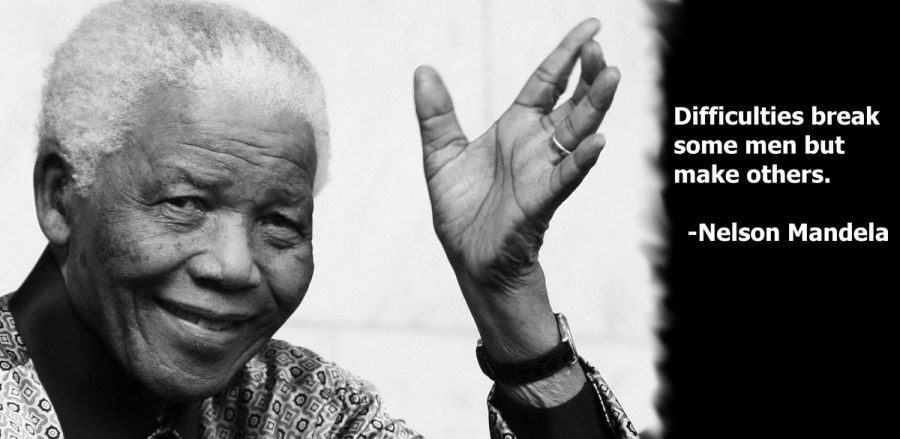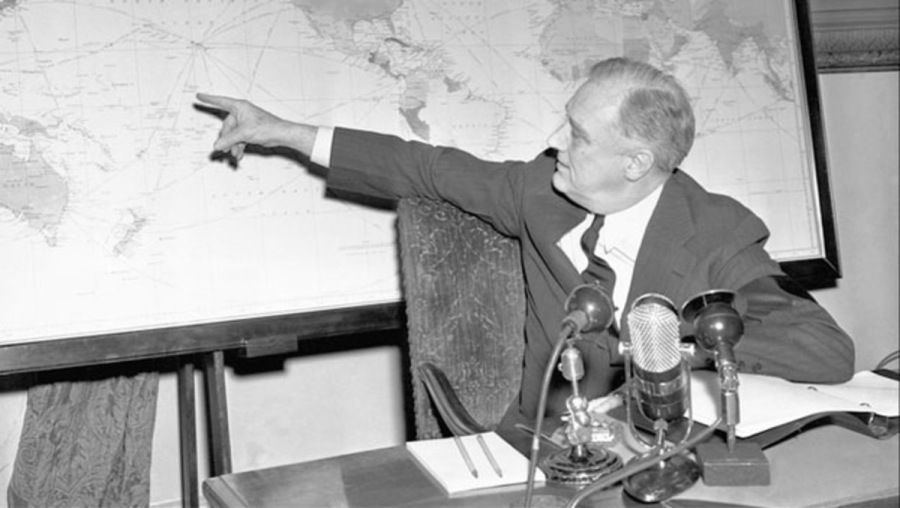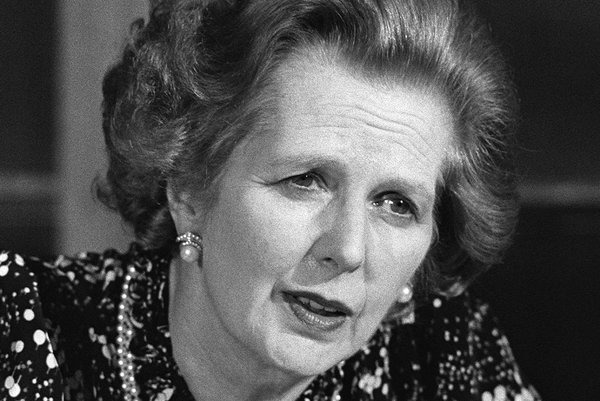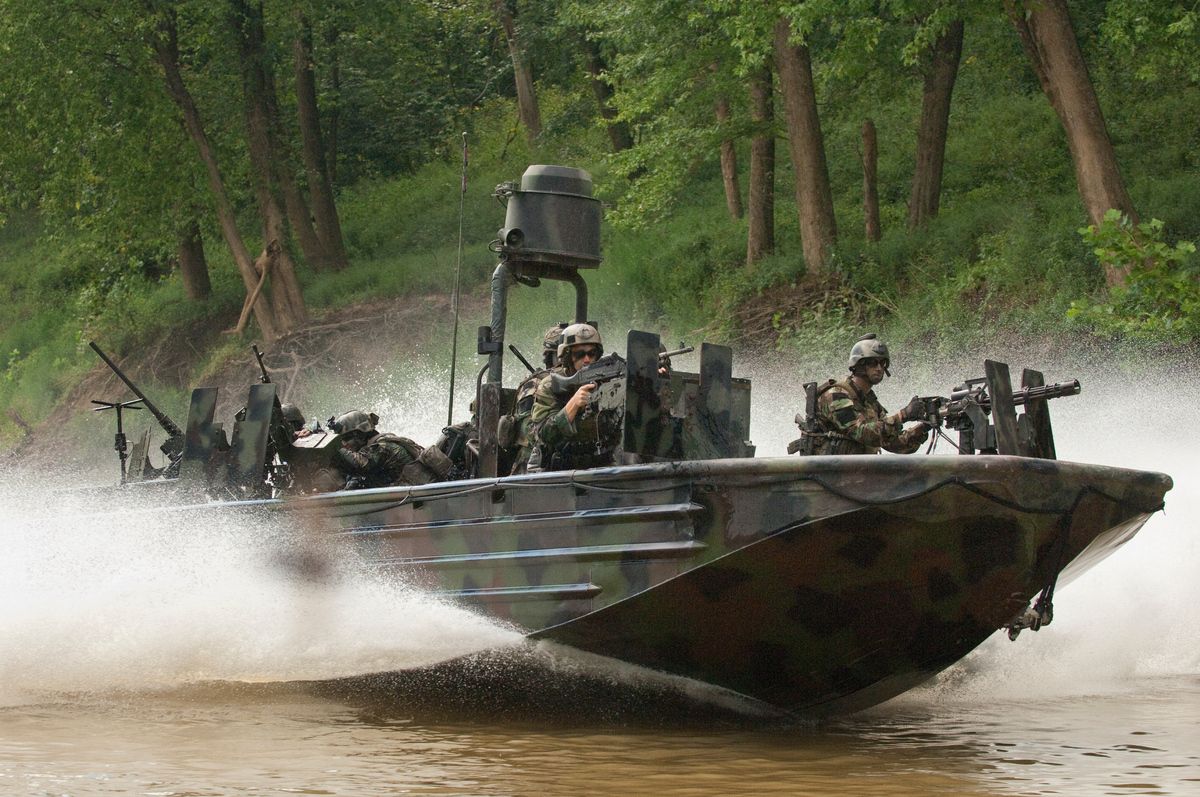Are You an Authentic Leader? Figuring Out the Little “L” from the Big “L”
I am your servant. I do not come to you as a leader, as one above others.

When you read these words did the person who said them come to mind? Admittedly, the world is adrift in leadership quotations. But what makes these words special is that they were uttered by Nelson Mandela, a man who suffered during his 27 years of incarceration in a South African prison.
This post delves into personal leadership and poses this question: “Am I an authentic leader?”
We’ve heard statements that leaders are born. Others argue that leaders can be developed. Well, how about going back in time to hear from Aristotle:
“From the moment of their birth, some are marked for subjugation, and others for command.”
That may not be all that helpful, especially when the general consensus now is that leaders can be developed.
Here’s one way to look at the issue: I’ve organized the debate over who possesses leadership into two types of leadership: Big L and Little L. My view is that only a few of us will ever have the dynamic leadership behaviours and skills to lead organizations, private, public or non-profit, large or small, or the populace of a country, state or province. Only a few of us have what it takes to be a Big L leader.
What propelled people like Winston Churchill, Mohandas Gandhi, Golda Meir, Margaret Thatcher, Franklin Roosevelt, and Nelson Mandela to be world-class leaders? For those who are sports-minded, consider the great athletes like Bobby Orr, Billy Jean King, Wayne Gretsky, or Mohammed Ali. Or how about such vocalists as Aretha Franklin, Ella Fitzgerald, or Beverly Sills?
These individuals possessed an innate talent and drive that propelled them to succeed. Why do some children at a very young age show an incredible skill in a certain discipline, yet other children work hard but only attain a modest level of proficiency?
To lead an organization, especially in today’s turbulent world, requires someone with unique abilities. Some of these can be learned. But there needs to be an inner drive and vision that causes that individual to want to lead others. This raises the issue of power and status, for which many people strive in their efforts to rise to the top.
So what about power?

First off, power can be an important component of effective leadership, provided it’s used properly and for the right purposes. When top leaders abuse power by controlling and manipulating their subordinates, then these are not Big L leaders. They may be good managers, but when it comes to inspiring people and leading with integrity, they fall short of achieving this.
Reflect on the following quote by the late Peter Drucker, who called things as he saw them. He believed that leadership must be founded upon a constitution; otherwise, irresponsibility will result:
"I am amazed that today's prominent writers on leadership do not seem to realize that the three most charismatic leaders in all recorded history were named Hitler, Stalin and Mao. I do not believe that there are three men who did more evil and more harm. Leadership has to be grounded in responsibility. It has to be grounded in a constitution. It has to be grounded in accountability. Otherwise, it will lead to tyranny.”
Drucker was an advocate for shared leadership. He believed in employee responsibility and the need for a “self-governing community,” where individuals and teams share in many managerial activities. And this brings us to the concept of Little L leadership.
What is Little L leadership?
It’s the leadership we see displayed throughout organizations and community — the day-to-day acts that people at all levels engage. However, there are those who aren’t interested in taking on leadership roles. That’s okay. Some of them will gradually come on board, while others will continue to want to be led by their peers and managers.
This is a key point to remember when reflecting on our personal leadership styles and potentials.
It comes down to each of us being authentic in how we conduct ourselves. We need to strip off the facades we wear and own up to our weaknesses, limitations and warts. When we’re honest and open with ourselves and others, we gain greater confidence and self-respect, plus respect from others. Be true to yourself and others will be true to you.
Here’s a personal example.
When I was in my early 30s I was promoted to manager of a team of economists. I had zero management training. Because of my own insecurities and wanting to do a good job, I became a micro manager. That was until a couple of the young economists straightened me out. It took a while but I learned to eventually let go and share the leadership with my team.
I was still the manager, but my team took a lot of initiative and consistently demonstrated leadership in their own ways. There’s no magic formula or cookie cutter approach to this. Each of us has to find our own way. In my case I had to fall on my nose a number of times.

Here are three questions you may wish to reflect upon when it comes to developing your leadership skills:
1. What are my strengths and weaknesses? (Be honest with yourself)
2. What do I need to do to be more adventurous and risk-taking?
3. How can I inspire others to follow me to work towards a common purpose?
Here’s one piece of advice: If you want to inspire others (an essential part of leadership), you need to be passionate about your cause.
The following true story underlines this advice.
I recall watching a PBS program many years ago that looked at the head surgeon of an emergency room in a large US city. As you can imagine, an ER can be an extremely hectic and stressful place in which to work. People have to know their duties and understand the interdependency of their efforts.
What struck me most about watching the surgeon was his calmness in dealing with highly stressful situations in the midst of chaos. Multiple victims of car accidents and victims with gunshot wounds. As he stated to the journalist: “My staff look at me to keep it together. If I lose it, they lose it.” When his shift finished, where did he go? Home? No, he went to do volunteer work with inner city children. For me, this guy showed exemplary leadership.
Was this man born as a natural leader, or did he develop over time?
Each of us needs to see our personal quest for leadership as one that first starts with the discovery of who each of us really is. We need:
To know ourselves,
To hear ourselves,
To tell the truth to ourselves,
To be honest with ourselves.
Once we address these questions and reexamine our values and beliefs, we’ll be ready to move forward in our leadership journey. Sure, leadership skills can be learned. But the first step is a process in which we look inside ourselves.
This journey is a very personal and private one. We may or may not to wish to share with others along the way. However, one thing needs to be clear and that is every leader must go through it.
Authors Kouzes and Posner (The Leadership Challenge) state:
You can’t elevate others to higher purposes until you’ve first elevated yourself….You can’t lead others until you’ve first led yourself through a struggle with opposing values….A leader with integrity has one self, at home and at work, with family and with colleagues. Such a leader has a unifying set of values that guide choices of action regardless of the situation.
Here are four excellent questions they pose to help facilitate the leadership journey:
• What are my values and beliefs on how people should operate in the organization?
• How strongly am I attached to my values and beliefs?
• How strong is my relationship with those I lead and with whom I work?
• Am I the right one to be leading at the moment?
The last question is especially important. It gets at the heart of the shared leadership issue. Regardless of one’s “position” in the organization, there are times when one steps forward to lead and times when one steps back. As Kouzes and Posner state:
To step out into the unknown, begin with the exploration of the inner territory. With that as a base, we can then discover and unleash the leader within us all.
Hopefully, this post has given you some new information that will spur you on to examine your personal leadership. Your thoughts and comments are welcome.
Try to feel things more inclusively instead of exclusively. The more things that can make up the whole—invite that into your life. -- Kevin Eubanks (Jazz guitarist, as told to NPR Music)
Articles from Jim Taggart
View blog
In the previous post Is Your Team REALLY a Team? Why Instant Pudding Doesn’t Cut It we looked at the ...

The literature on inter-generational differences has been in hyper-drive for a while. Think tanks sp ...

Many years ago, I watched Eco-Challenge 2000 on the Discovery Channel (a show that ran from 1995 to ...
You may be interested in these jobs
-
food services manager
Found in: Talent CA 2 C2 - 22 hours ago
Krawchuk Enterprises Inc. Victoria, CanadaDurée de l'emploi: Permanent · Langue de travail: Anglais · Heures de travail: hours per month · Education: · Expérience: · Education · Secondary (high) school graduation certificate · Work setting · Urban area · Budgetary responsibility · $100,001 - $500,000 · Tasks · Plan, or ...
-
Food & Beverage Manager
Found in: Talent CA C2 - 19 hours ago
Coast Hotels Edmonton, CanadaThe Food & Beverage Manager contributes to the overall success of the hotel by leading and managing the property's food & beverage operations in alignment with Coast Hotels' long-term strategy. Reporting to the General Manager, this position will ensure the continued growth and d ...
-
packaging machine operator
Found in: Talent CA 2 C2 - 23 hours ago
Pak National Foods Ltd Burnaby, CanadaEducation: · Expérience: · Education · No degree, certificate or diploma · Tasks · Operate machinery to process and bag, box or otherwise package food products · Observe gauges, computer printouts and video monitors to verify specified processing conditions · Maintain shift log ...



Comments